Abstract
The end of the Bretton Woods agreement led not only to changes in the international economic relations, but also in the very way in which capitalism functions. The liberalization of capital flows and deregulation and integration of financial markets under US leadership gave rise to a new systemic pattern of wealth, financialization, in which operations with financial assets received increased importance in the management of wealth by households and enterprises, and not only by banks and the other financial market institutions. Unlike most recent interpretations of this phenomenon, this one does not indicate a tendency of the system towards stagnation, but rather an increase in the instability that characterizes it, reinforcing the moments of expansion, contraction, as well as leading to crises. In fact, with the generalization and the dominance of finance, borrowing and spending decisions by enterprises and households are now increasingly responsible for current and expected fluctuations in the stock of wealth, which in turn are responsive to current and expected fluctuations in the prices of financial assets. This implies a transformation in the relationship between the state and the market, with central banks and national treasures becoming hostage to the need to prevent private losses and the perverse effects they may exercise over output, income and employment levels of the economy.
Keywords:
Financialization; Contemporary capitalism; Economic dynamic; Instability; Inequality

 Source: Federal Reserve System. Authors’ own elaboration.
Source: Federal Reserve System. Authors’ own elaboration.
 Source: Federal Reserve System. Authors' own elaboration.
Source: Federal Reserve System. Authors' own elaboration.
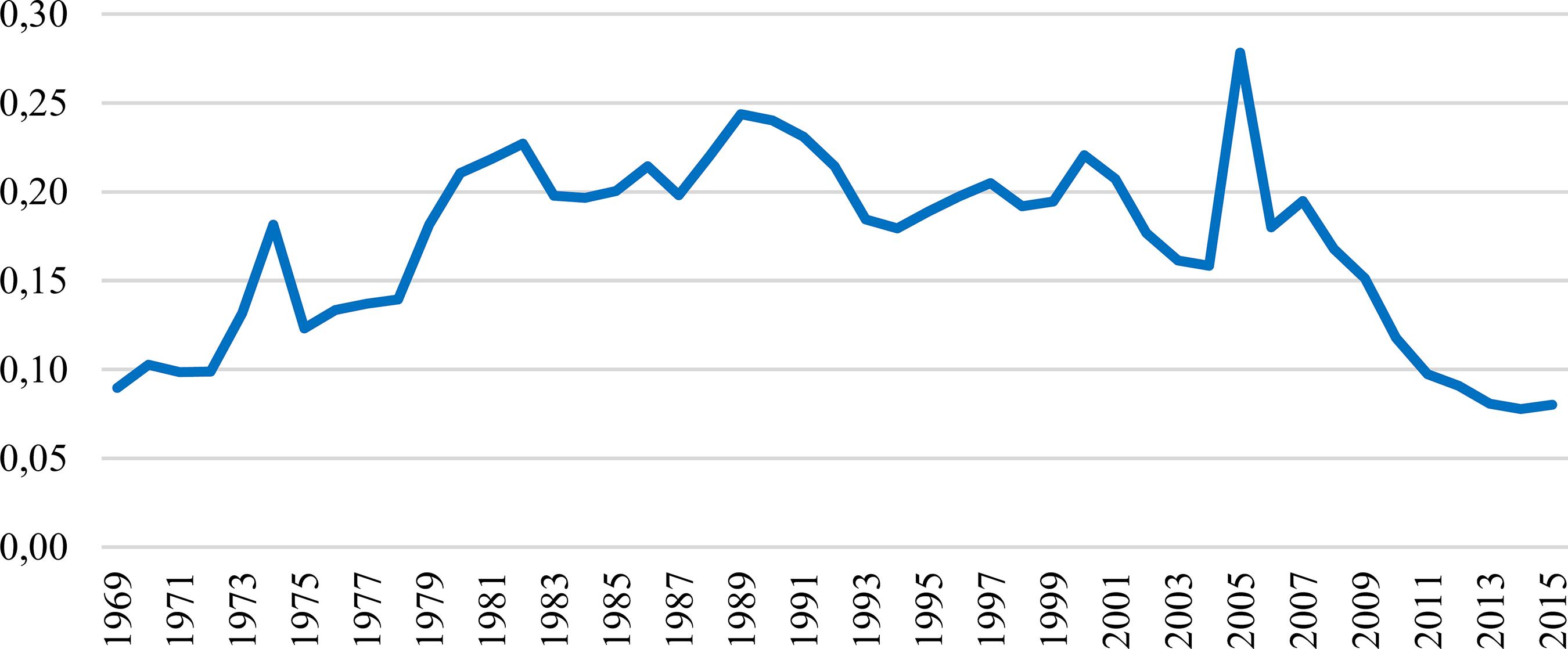 Source: Bureau of Economic Analysis. Authors’ own elaboration.
Source: Bureau of Economic Analysis. Authors’ own elaboration.
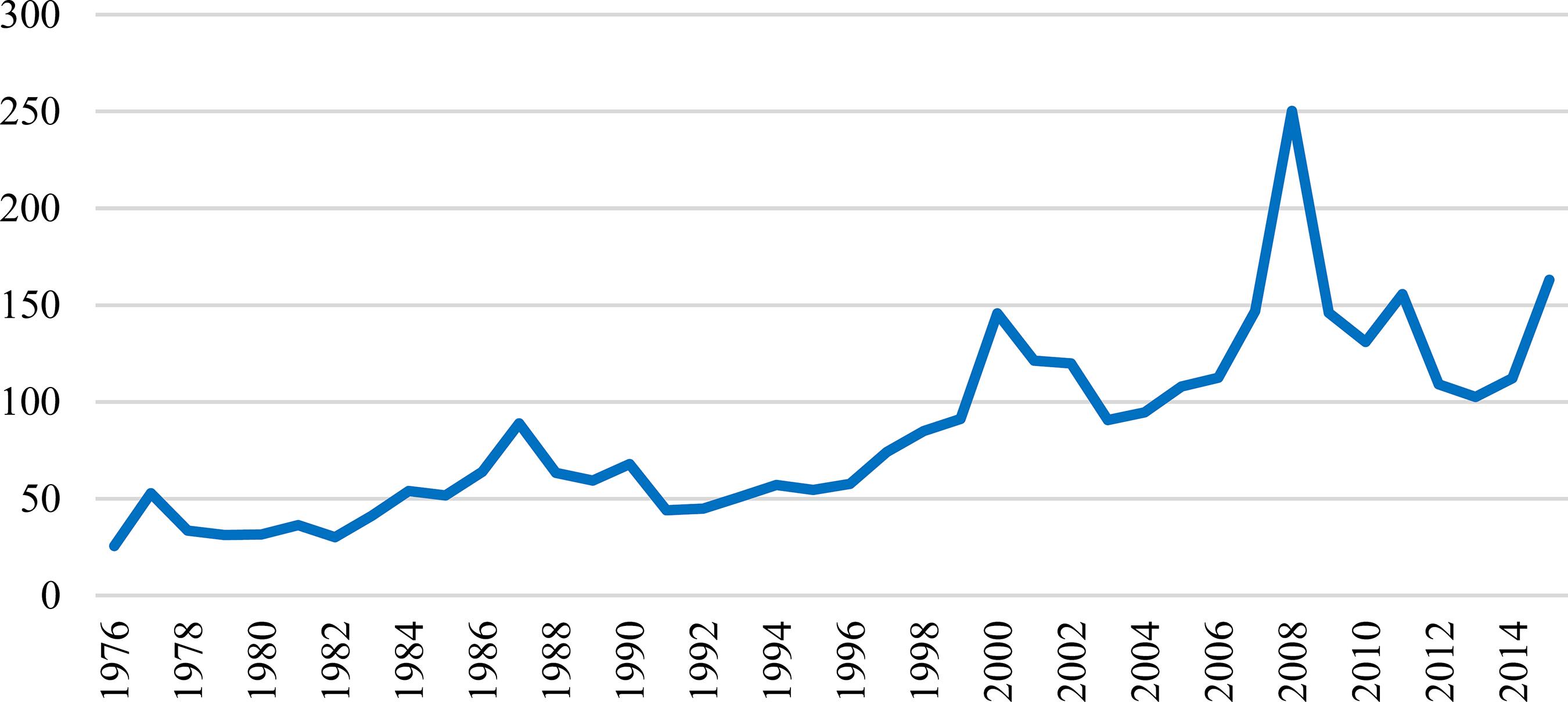 Source: World Federation of Exchanges. Authors’ own elaboration.
Source: World Federation of Exchanges. Authors’ own elaboration.
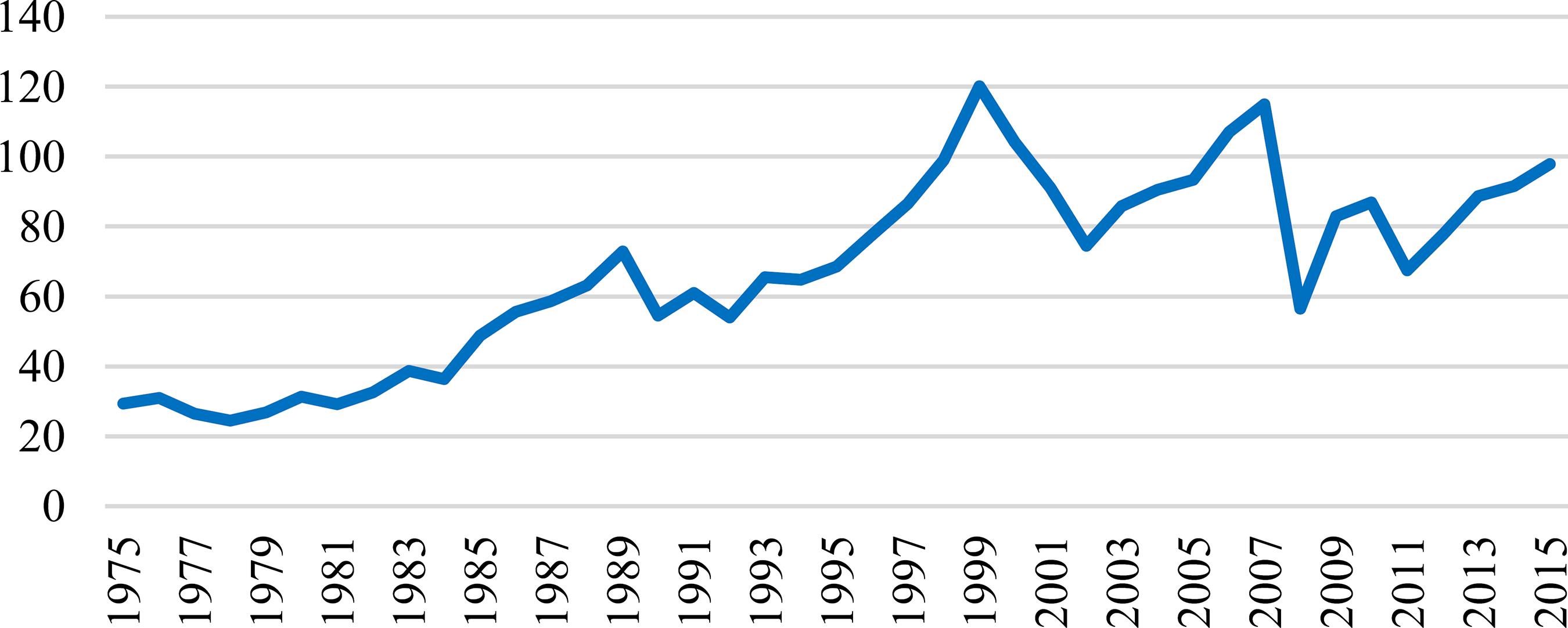 Source: World Federation of Exchanges. Authors’ own elaboration.
Source: World Federation of Exchanges. Authors’ own elaboration.
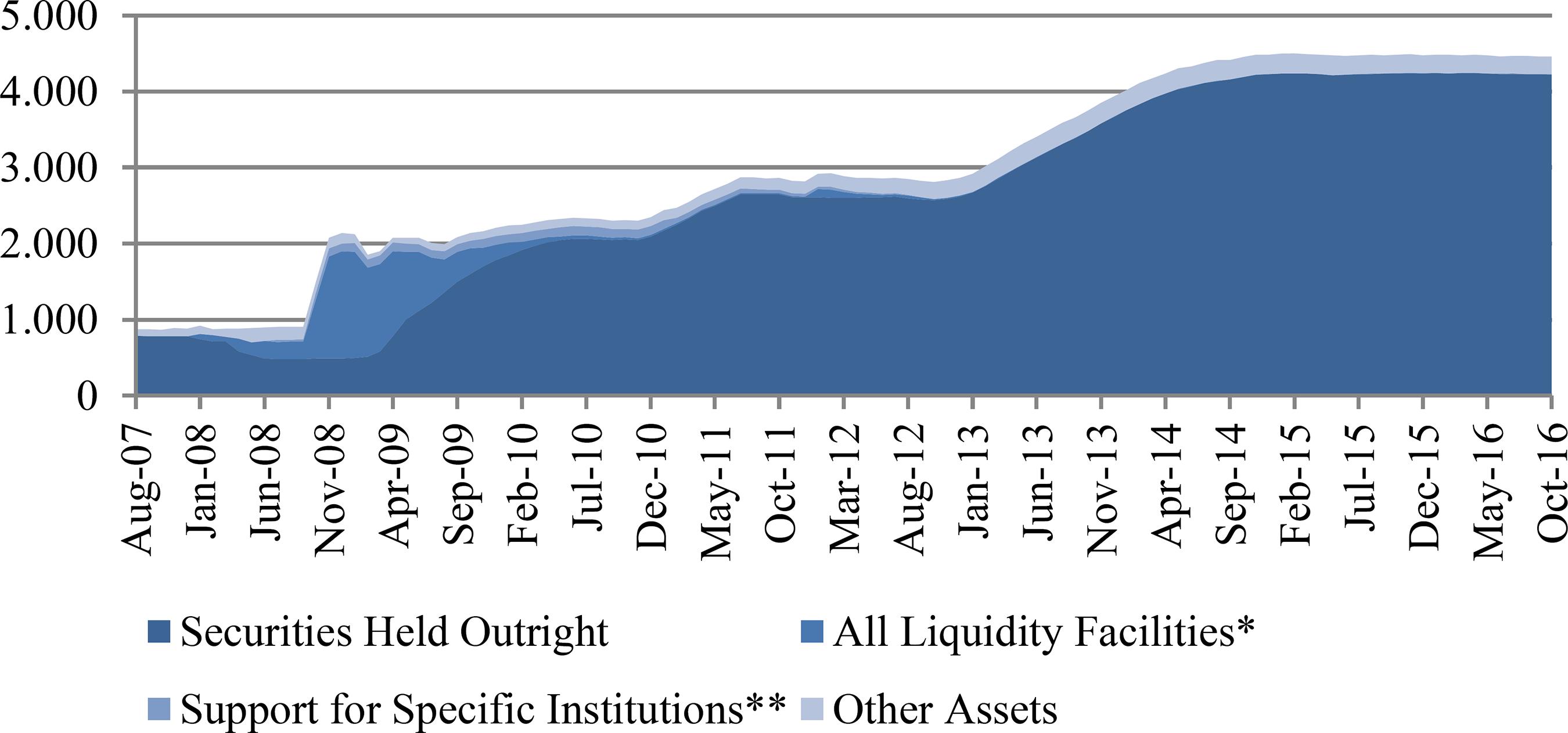 Source: Federal Reserve System. Authors’ own elaboration.
Source: Federal Reserve System. Authors’ own elaboration.
 Source: Federal Reserve System. Authors’ own elaboration.
Source: Federal Reserve System. Authors’ own elaboration.
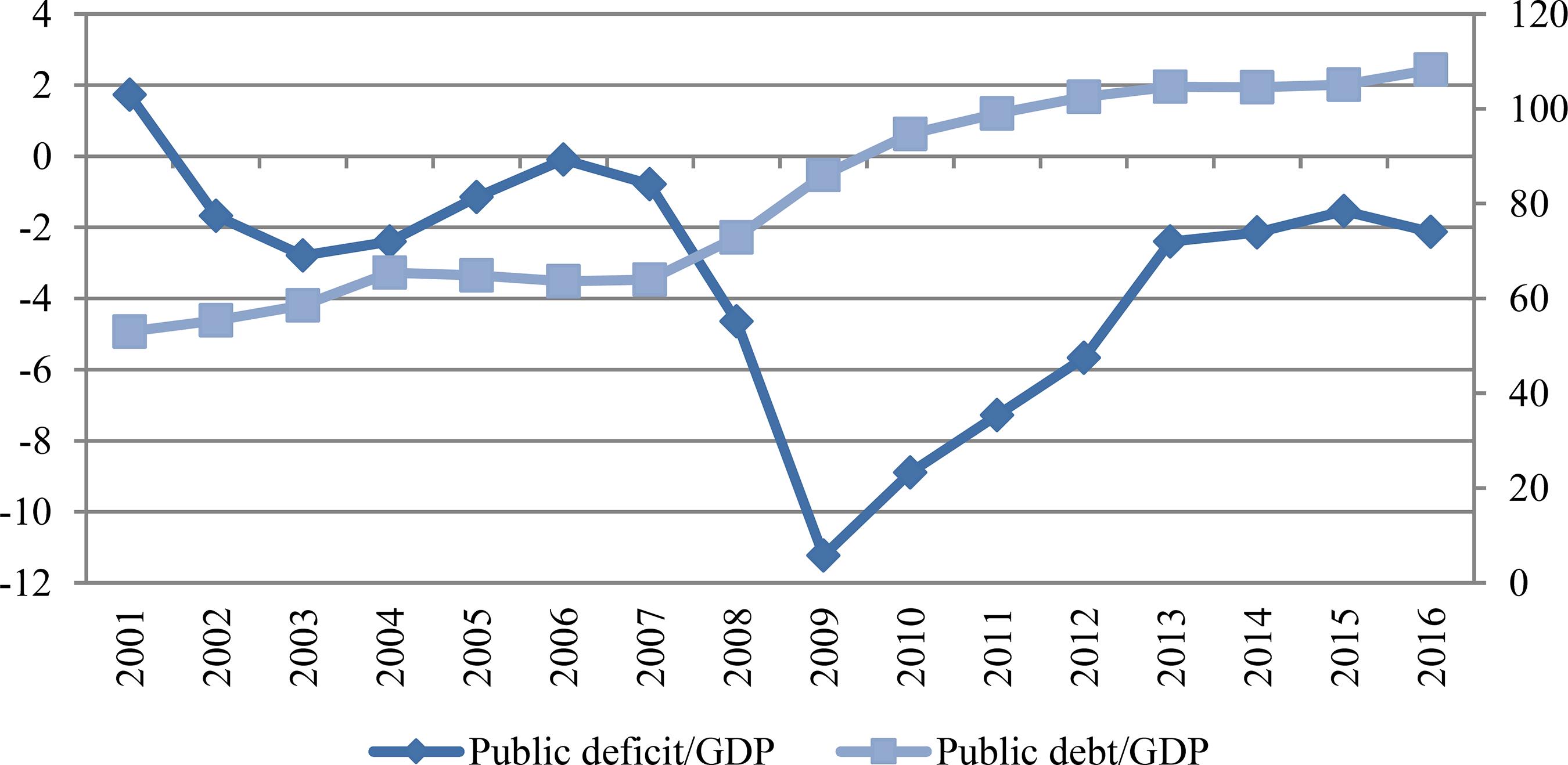 Source: IMF. Authors’ own elaboration.
Source: IMF. Authors’ own elaboration.
 Source: OECD. Authors’ own elaboration.
Source: OECD. Authors’ own elaboration.
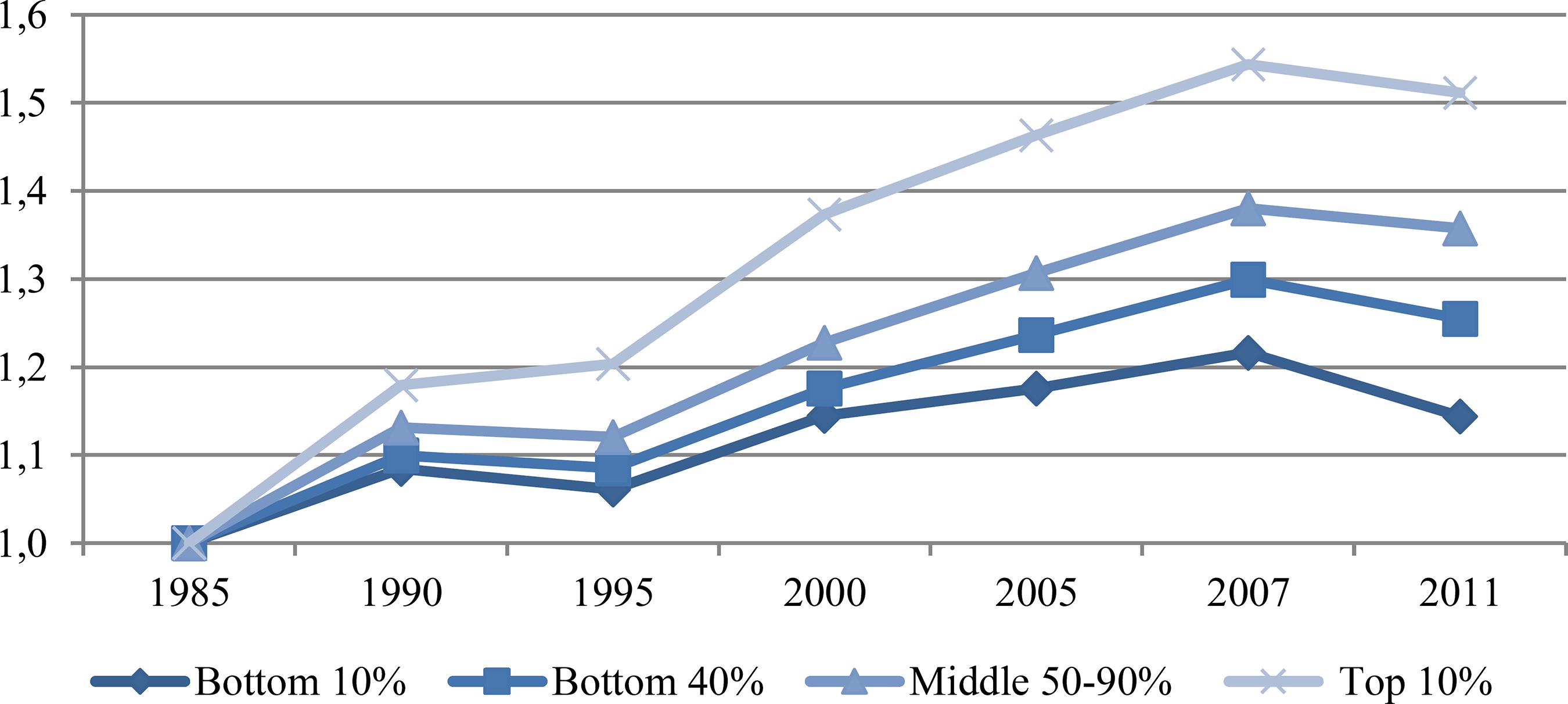 Source: OECD. Authors’ own elaboration.
Source: OECD. Authors’ own elaboration.
 Source: OECD. Authors’ own elaboration.
Source: OECD. Authors’ own elaboration.